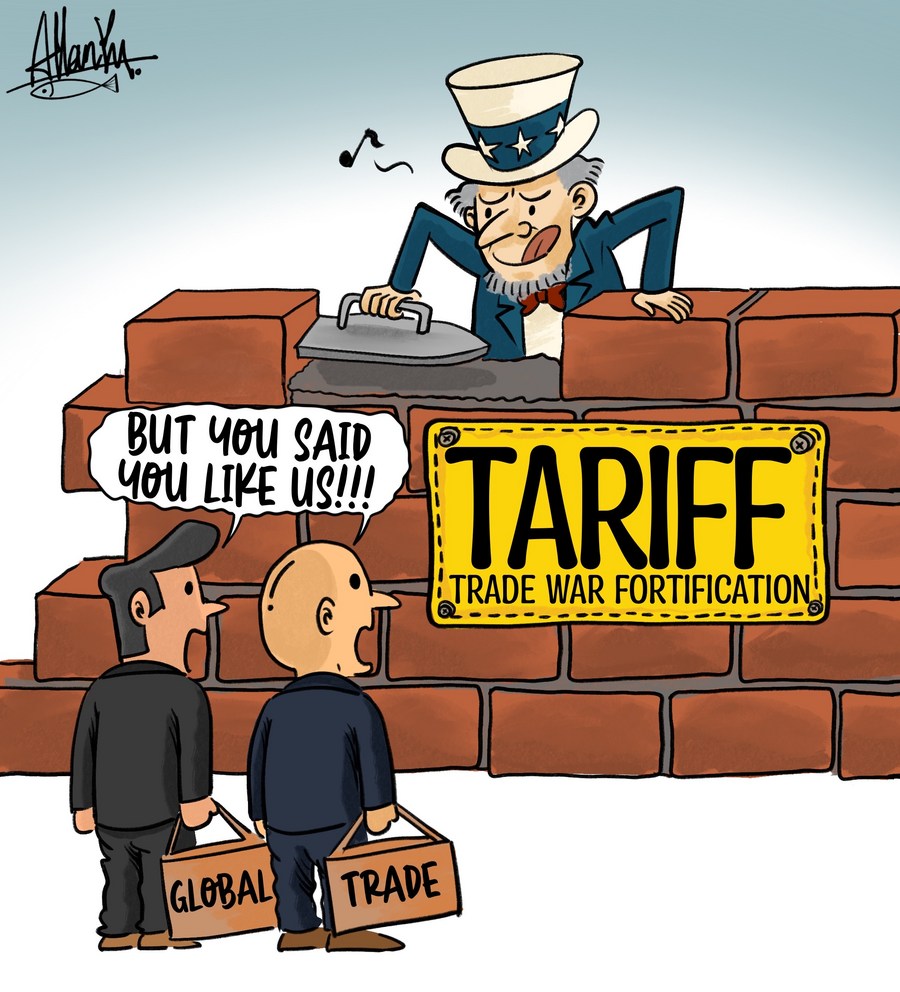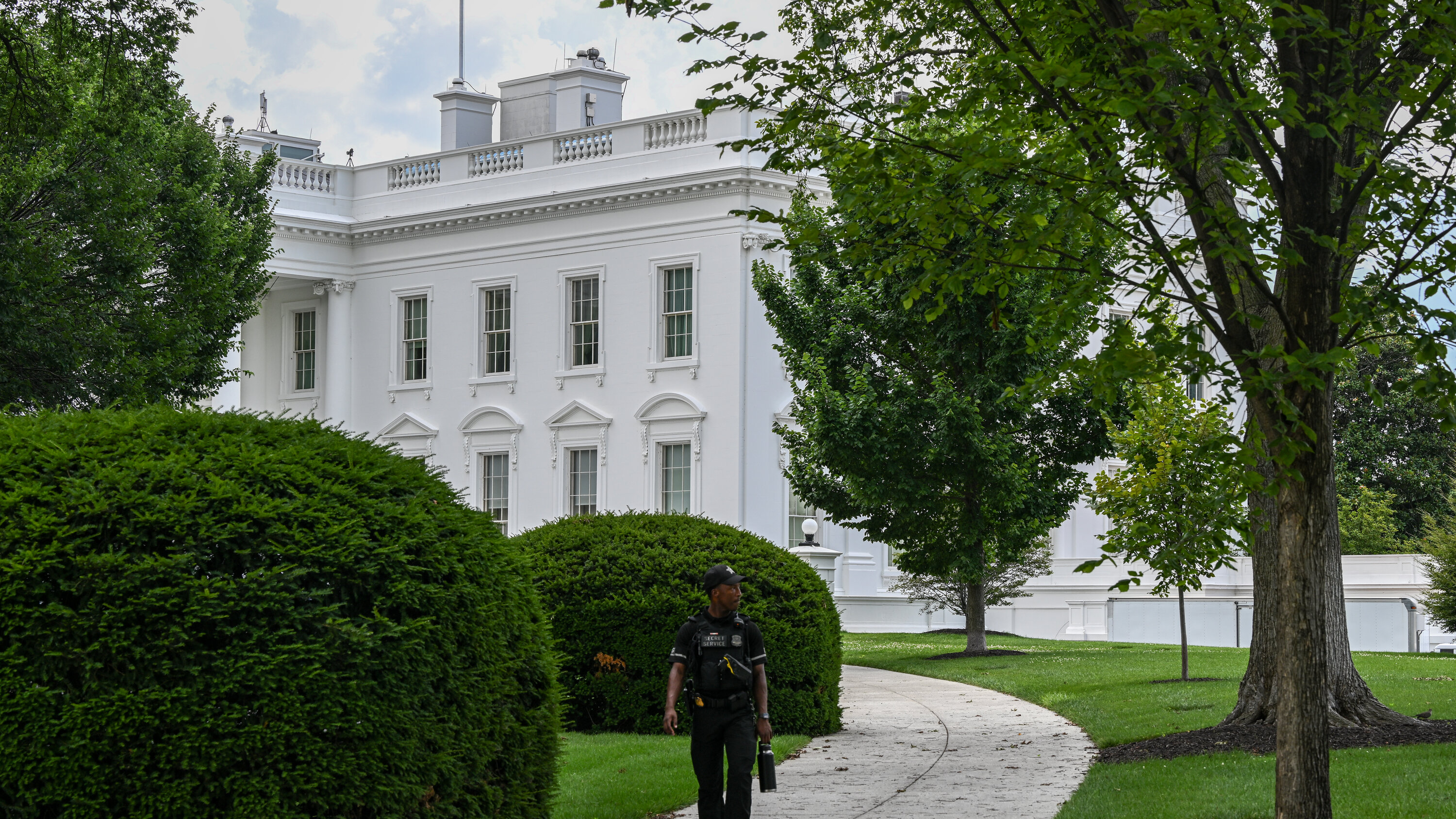Trump's Trade Wars: A Reassessment Of America's Global Financial Position

Table of Contents
The Rationale Behind Trump's Trade Policies
The Trump administration's trade policies were rooted in a perceived need to address long-standing trade imbalances and protect American industries from foreign competition. This "America First" approach prioritized domestic interests, even if it meant disrupting established global trade relationships.
Addressing the Trade Deficit
A key driver of Trump's trade actions was the persistent US trade deficit, particularly with China. The argument was that unfair trade practices, including intellectual property theft and subsidized exports, contributed to this imbalance, harming American businesses and workers.
- Statistics: The US trade deficit widened significantly in the years leading up to the trade wars, peaking in 2018.
- Targeted Countries: China bore the brunt of the trade actions, facing significant tariffs on various goods. Mexico, the European Union, and other countries also faced retaliatory tariffs.
- "America First": This policy prioritized American interests above multilateral trade agreements, leading to a more protectionist stance.
Protecting American Industries
Another core objective was to shield American industries from what the administration viewed as unfair foreign competition. The belief was that tariffs could revive domestic manufacturing and create jobs.
- Targeted Industries: Steel and aluminum were early targets, with tariffs imposed to protect domestic producers. Other industries also faced tariffs and trade restrictions.
- Tariffs and Competitiveness: Tariffs increased the cost of imported goods, potentially making American-made products more competitive. However, this also led to higher prices for consumers and potential supply chain disruptions.
- Job Creation/Preservation: While job creation in some sectors was claimed, the overall impact on employment remains a subject of debate.
Economic Consequences of the Trade Wars
The economic fallout from Trump's trade wars was multifaceted, impacting American consumers, businesses, and the global economy.
Impact on American Consumers
Tariffs directly increased the cost of many imported goods, reducing consumer purchasing power and contributing to inflation.
- Inflation and Consumer Spending: Statistics show a rise in inflation during the trade wars, potentially dampening consumer spending.
- Impact on Specific Goods: Consumers faced higher prices on various goods, from steel and aluminum products to electronics and clothing.
Effects on American Businesses
American businesses faced various challenges, including increased input costs, supply chain disruptions, and retaliatory tariffs from other countries.
- Negative Impacts: Some businesses relocated production facilities to avoid tariffs or to access cheaper resources. Others faced reduced sales due to higher prices.
- Supply Chain Disruptions: The trade wars created uncertainty and complexities in global supply chains, impacting businesses' ability to source materials and deliver goods.
Global Economic Implications
The trade wars negatively impacted global economic growth, disrupting international trade and supply chains.
- Global Trade Growth Slowdown: The increased uncertainty and trade barriers contributed to a slowdown in global trade growth.
- Impact on Specific Countries and Regions: Countries heavily reliant on exports to the US, such as Mexico and China, faced significant economic challenges.
Long-Term Effects on America's Global Financial Position
The long-term effects of Trump's trade wars continue to unfold, significantly altering America's global alliances and its economic relationships.
Shifting Global Alliances
The trade wars strained relationships with key trading partners, undermining the multilateral trading system and weakening international cooperation.
- Strained Relationships: The US's relationship with China deteriorated significantly, impacting various aspects of bilateral relations. Similar tensions emerged with the EU and other countries.
- Impact on International Organizations: The trade wars challenged the authority and effectiveness of international organizations like the World Trade Organization (WTO).
The Debt and Deficit
The economic slowdown caused by the trade wars may have contributed to increased government spending and a larger national debt.
- National Debt and Deficit: While specific causality is complex, the economic effects of the trade wars might have indirectly impacted the national debt and deficit.
- Fiscal Stimulus: The government may have implemented fiscal stimulus measures to offset some of the negative economic consequences of the trade wars.
Restructuring Global Trade Relationships
The trade wars have left a lasting impact on the structure of global trade, potentially reshaping future trade agreements and partnerships.
- Changes in Trade Agreements: The trade wars led to renegotiations of existing trade agreements and the exploration of new trade partnerships.
- Long-Term Implications: The lasting impact of these changes on the US economy and its position in the global trade system remains to be seen.
Conclusion
Trump's trade wars had a profound and multifaceted impact on America's global financial position. While intended to address trade imbalances and protect domestic industries, they resulted in increased consumer prices, challenges for American businesses, and strained relationships with key trading partners. The long-term consequences, including the restructuring of global trade relationships and the impact on the national debt, are still unfolding. Understanding the intricacies of Trump's trade wars is crucial for navigating the complexities of America's global financial future. Continue your research to gain a deeper understanding of this transformative period in economic history.

Featured Posts
-
 Secret Service Closes Investigation Into White House Cocaine Discovery
Apr 22, 2025
Secret Service Closes Investigation Into White House Cocaine Discovery
Apr 22, 2025 -
 Access To Birth Control The Otc Revolution After Roe V Wade
Apr 22, 2025
Access To Birth Control The Otc Revolution After Roe V Wade
Apr 22, 2025 -
 Harvard And The Trump Administration A 1 Billion Funding Cut And Rising Conflict
Apr 22, 2025
Harvard And The Trump Administration A 1 Billion Funding Cut And Rising Conflict
Apr 22, 2025 -
 Google Doj Return To Court The Fight Over Search Monopoly Continues
Apr 22, 2025
Google Doj Return To Court The Fight Over Search Monopoly Continues
Apr 22, 2025 -
 Ryujinx Emulator Shuts Down Following Nintendo Contact
Apr 22, 2025
Ryujinx Emulator Shuts Down Following Nintendo Contact
Apr 22, 2025
